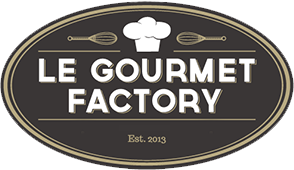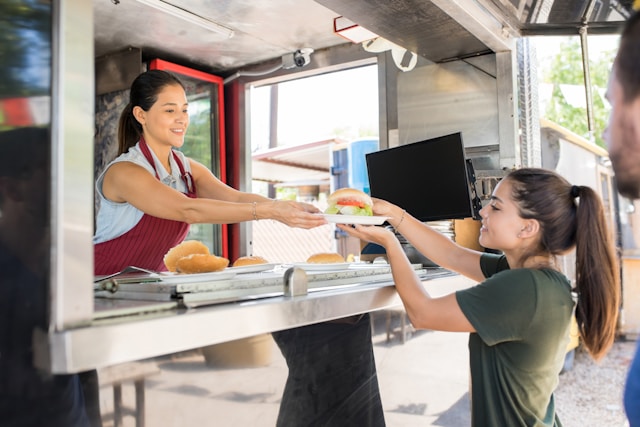Food Truck Business Planning: Laying the Foundation for Success
Learn how to do a winning food truck business planning. From market research to financial planning, this guide sets you up for success.

Continue exploring the next articles in this series:
Discover the pros and cons of starting a food truck business. Learn about the benefits, challenges, and how to navigate…
Or navigate back to explore other related content :
Explore the food truck business model: mobility, flexibility, and low costs. Learn the framework for success in this thriving culinary…
01: Introduction
Launching a food truck business starts with a well-thought-out plan. A detailed business plan serves as your roadmap, guiding you through the challenges and opportunities of this competitive industry. From understanding your target audience to budgeting and marketing, food truck business planning is crucial for turning your vision into reality. In this guide, we’ll break down the essential steps to creating a comprehensive business plan that sets you up for success.
02: Why a Business Plan is Essential
A business plan is more than just a document—it’s your strategy for success. It outlines your goals, the steps needed to achieve them, and how you’ll measure progress. A strong business plan:
- Provides clarity on your business concept and goals.
- Helps secure funding from investors or lenders.
- Acts as a reference point for decision-making.
- Identifies potential challenges and solutions.
Without a plan, food truck owners risk wasting time and resources on missteps.
03: Key Components of a Food Truck Business Plan
Executive Summary
The executive summary provides an overview of your business idea, including your mission, vision, and goals. This section should briefly describe:
- Your concept (e.g., gourmet tacos, vegan desserts).
- Your target audience.
- The unique selling point that sets your truck apart.
Market Research
Understanding your market is crucial. Conduct research to identify:
- Target Audience: Who are your customers? Office workers? College students? Event attendees? Tailor your offerings to their preferences.
- Competitors: Analyze other food trucks in your area. What are they doing well? Where can you differentiate?
- Location Opportunities: Identify high-traffic areas, events, or neighborhoods that align with your concept.
Menu Planning
Your menu is the heart of your food truck business. Focus on:
- Simplicity: A streamlined menu ensures efficiency in preparation and reduces waste.
- Specialization: Offer unique items that differentiate you from competitors.
- Costing: Calculate food costs to ensure profitability without pricing yourself out of the market.
Financial Planning
Accurate financial planning is critical to your success. Key elements include:
- Startup Costs: Estimate expenses such as purchasing or leasing a truck, permits, and equipment.
- Operating Costs: Account for fuel, maintenance, food supplies, and employee wages.
- Revenue Projections: Estimate monthly income based on your menu pricing and expected sales volume.
- Break-Even Analysis: Determine how much revenue you need to cover expenses and start earning a profit.
Marketing Strategy
Marketing Strategy
Your marketing plan outlines how you’ll attract and retain customers. Strategies may include:
- Social Media: Use platforms like Instagram and Facebook to share locations, menu updates, and promotions.
- Partnerships: Collaborate with local businesses, breweries, or event organizers to increase visibility.
- Loyalty Programs: Reward repeat customers with discounts or freebies to build loyalty.
04: Practical Tips for Effective Planning
Be Realistic with Goals
Set achievable, measurable goals for your business. Unrealistic expectations can lead to disappointment and financial strain.
Plan for Challenges
Anticipate potential hurdles, such as mechanical issues, permit delays, or unexpected costs. Building contingency plans will help you stay prepared.
Stay Flexible
The food truck industry is dynamic, so be prepared to adapt your plan as market trends and customer preferences evolve.
05: Common Mistakes to Avoid
Underestimating Costs
Many food truck owners fail to account for all expenses, such as vehicle maintenance, marketing, or insurance. Comprehensive financial planning is a must.
Ignoring Customer Feedback
Listening to customer feedback is vital for improving your offerings and staying competitive. Use surveys, reviews, and social media comments to gather insights.
Overcomplicating the Menu
A complicated menu can slow down operations and lead to higher costs. Focus on a few standout items that align with your concept.
06: Next Steps in Food Truck Planning
Planning is just the first step in your food truck journey. Once your business plan is ready, it’s time to take action. To dive deeper into specific aspects of launching a food truck, explore the following guides:
- Food Truck Business Permits: Learn about the permits and licenses required to operate a food truck.
- Food Truck Business: Pros and Cons: Evaluate the advantages and challenges of the food truck industry.
By combining a well-crafted plan with detailed execution, you can turn your food truck dream into a thriving reality
- FAQ
fREQUENTLY ASKED QUESTIONS
Why is a business plan important for a food truck business?
A business plan provides clarity, helps secure funding, and serves as a roadmap for achieving your goals while identifying potential challenges.
What should be included in a food truck business plan?
Key components include an executive summary, market research, menu planning, financial projections, and a marketing strategy.
How do I estimate startup costs for a food truck?
Include expenses for the truck, permits, equipment, branding, and initial inventory. Costs typically range from $50,000 to $200,000.
What marketing strategies work best for food trucks?
Social media, collaborations with local businesses, and loyalty programs are effective ways to attract and retain customers.
Where can I learn more about food truck planning?
Explore our guide on Food Truck Business Permits to understand the next steps in launching your food truck business.
Continue exploring the next articles in this series:
Navigate the food truck permitting process with ease. Learn about essential licenses, application steps, and tips for compliance in this…
Discover the pros and cons of starting a food truck business. Learn about the benefits, challenges, and how to navigate…
Or navigate back to explore other related content :
Explore the food truck business model: mobility, flexibility, and low costs. Learn the framework for success in this thriving culinary…
- 176A South Van Brunt Street Englewood, NJ 07631
Copyright © 2023 Le Gourmet Factory. All Rights Reserved. Website Design, SEO and Internet Marketing by Creative Click Media.



